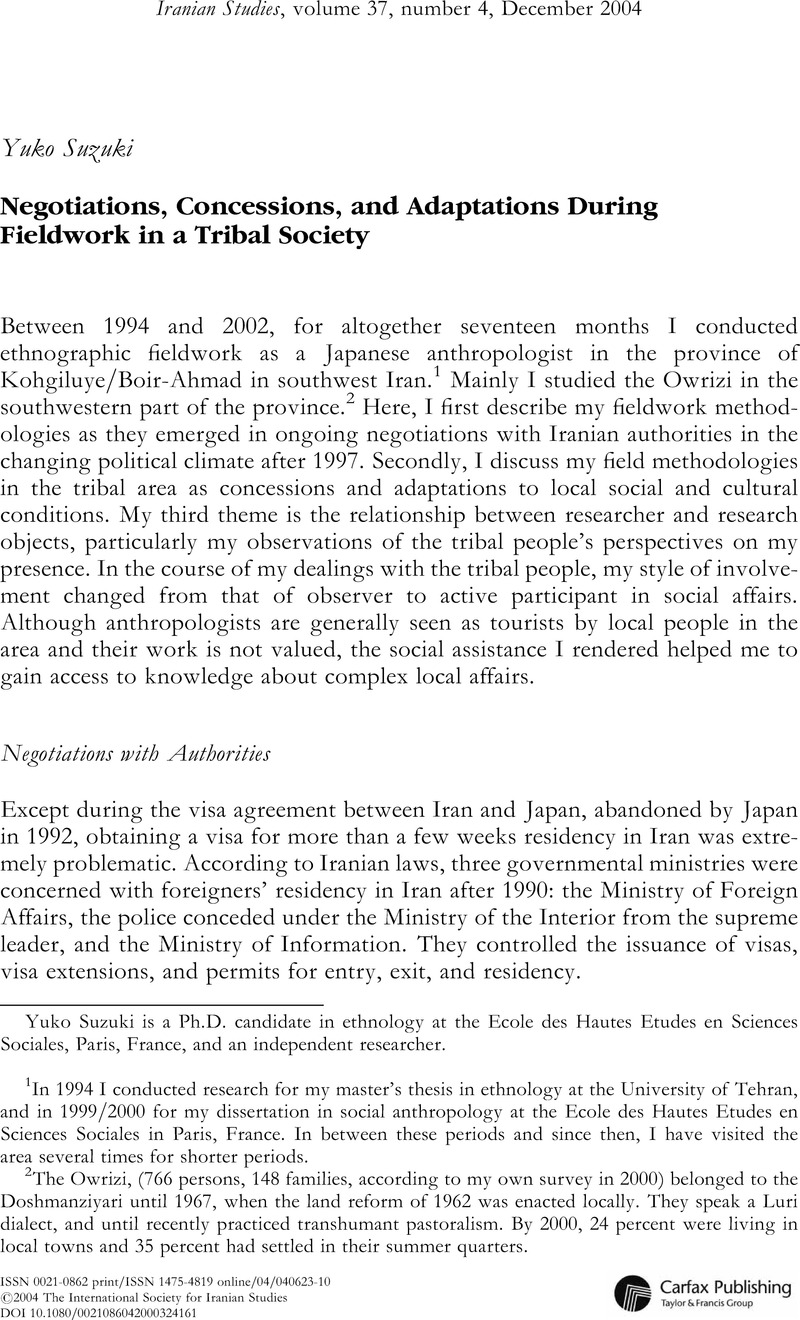Article contents
Negotiations, Concessions, and Adaptations During Fieldwork in a Tribal Society
Published online by Cambridge University Press: 01 January 2022
Abstract

- Type
- Articles
- Information
- Iranian Studies , Volume 37 , Issue 4: Special Issue: Ethnographic Fieldwork in Iran , December 2004 , pp. 623 - 632
- Copyright
- Copyright © 2004 The International Society for Iranian Studies
References
1 In 1994 I conducted research for my master's thesis in ethnology at the University of Tehran, and in 1999/2000 for my dissertation in social anthropology at the Ecole des Hautes Etudes en Sciences Sociales in Paris, France. In between these periods and since then, I have visited the area several times for shorter periods.
2 The Owrizi, (766 persons, 148 families, according to my own survey in 2000) belonged to the Doshmanziyari until 1967, when the land reform of 1962 was enacted locally. They speak a Luri dialect, and until recently practiced transhumant pastoralism. By 2000, 24 percent were living in local towns and 35 percent had settled in their summer quarters.
3 By 2001, the residency situation had improved: now an identity card and a temporary residency permit could be issued to all foreigners having a master's or Ph.D. degree under the condition of approval from the Ministry of Science, Research, and Technology or the Ministry of Health.
4 Iranian security authorities restrict access to tribal areas for foreigners because of insecurity, tribal people's alleged political instability, and the poverty, which authorities see as a disgrace to the national image.
5 Men generally dealt with me in a neutral research mode. Women tended to relate to me foremost as a woman.
6 As Luri is a non-written language, I transliterated Luri into Persian script as I was writing my notes.
- 2
- Cited by


